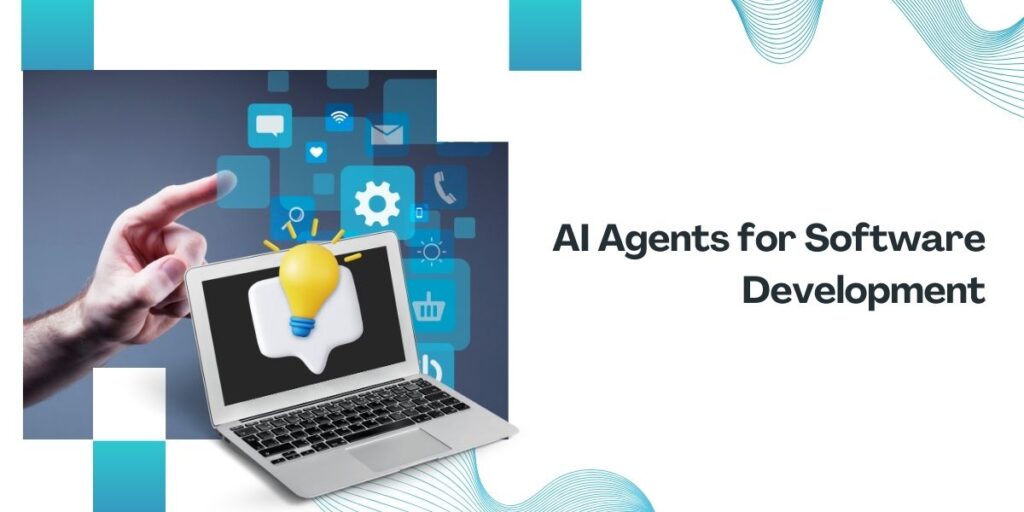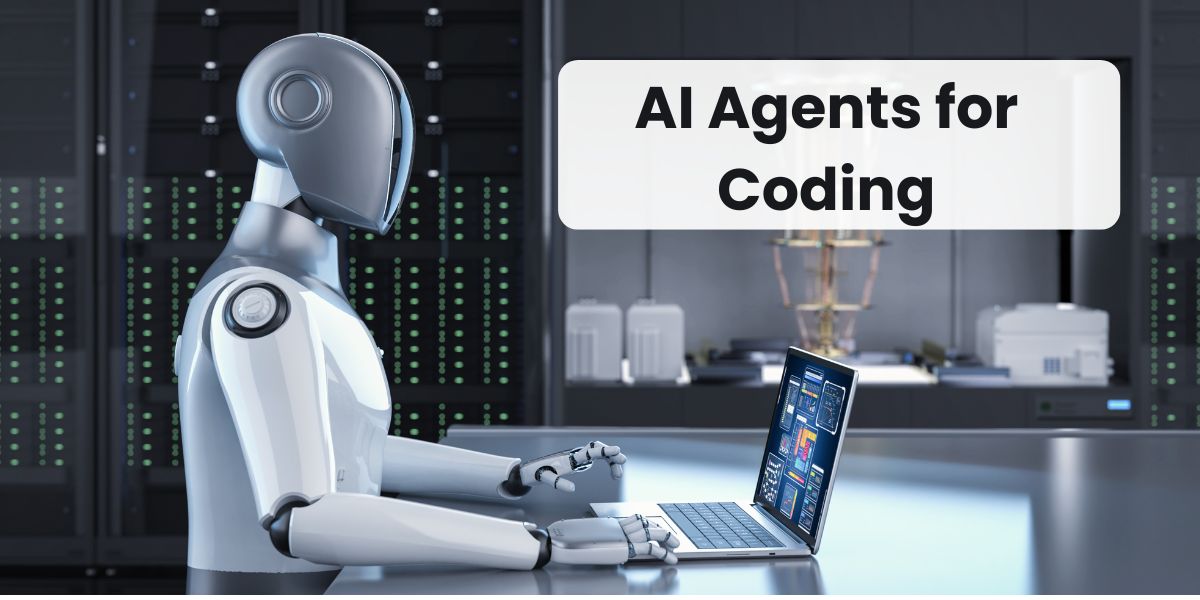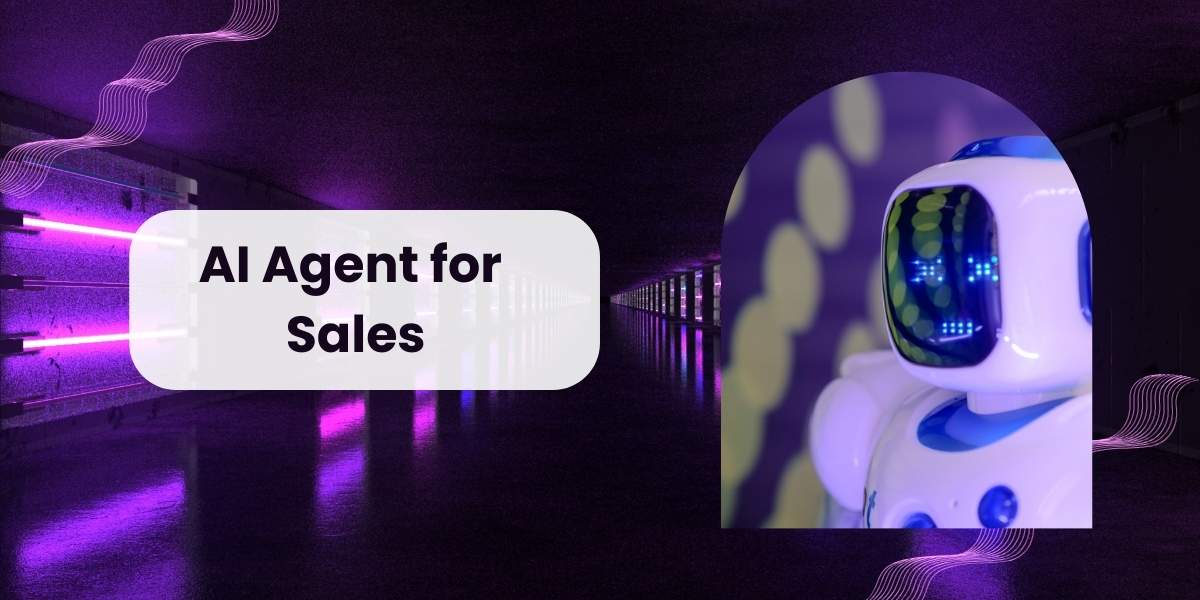Software development is experiencing a fundamental transformation like never before. From the early era where developers painstakingly wrote programs in low-level languages to the rise of advanced frameworks, automation tools, and scalable cloud platforms, each stage in history has brought innovations that simplify coding and enhance productivity. Today, however, the spotlight has decisively shifted toward artificial intelligence, signaling a new era where smart systems, rather than just tools, are driving the change. In this blog, we’ll dive deeper into the concept of personal AI agents for software development, evaluate some of the most effective tools already available in the market, spotlight agents that specialize in coding, analyze potential costs, and finally, explore what this revolution means for individual developers as well as large organizations moving forward.
One of the most impactful breakthroughs in this journey is the rise of AI agents tailored for software development. Unlike traditional tools such as autocomplete or code suggestion engines, these AI agents function more like autonomous collaborators. They can comprehend project requirements, recommend optimal solutions, generate code snippets, detect and troubleshoot errors, and even handle aspects of deployment, often requiring very little human intervention beyond guidance and review. This makes them far more advanced than the assisting tools developers have been used to.
By intelligently managing repetitive tasks, these AI-driven agents are redefining the way developers approach their craft. They allow teams to focus on creativity and problem-solving instead of routine coding, improve overall efficiency, and make programming more accessible to people who may not have deep technical expertise. In this blog, we’ll dive deeper into the concept of personal AI agents for software, evaluate some of the most effective tools already available in the market, spotlight agents that specialize in coding, analyze potential costs, and finally, explore what this revolution means for individual developers as well as large organizations moving forward.
Personal AI Agents for Software
A personal AI agent for software development functions as a highly intelligent assistant tailored to an individual developer’s unique workflow. Unlike generic coding tools, these agents continuously learn from the developer’s previous projects, preferred languages, and specific frameworks, gradually molding themselves into reliable long-term collaborators. Over time, they evolve into personalized companions that can:
- Suggest relevant code snippets aligned with a developer’s prior work and coding patterns.
- Recall project-specific rules, naming conventions, and architectural decisions to keep codebases consistent.
- Operate as a virtual “pair programmer” that is available anytime, eliminating time-zone or scheduling barriers.
- Assist in transferring knowledge when moving across projects, making onboarding and scaling much smoother.
- Automatically generate documentation written in the developer’s own style and tone to maintain consistency.
To illustrate, a front-end developer may configure their personal AI agent to focus on accessibility and responsive design standards, while a backend developer could emphasize optimization of APIs, database queries, and system performance. This adaptability makes them highly valuable across different specializations.
What truly sets personal AI agents apart, however, is their ability to retain context. Instead of simply autocompleting lines or suggesting syntax corrections, they grasp the broader structure and purpose of an application. They ensure continuity across multiple files, maintain coding standards over months of development, and even align with long-term product objectives. This depth of contextual understanding is where their real transformative power lies.
Best AI Agents for Software Development
By 2025, the landscape of AI agents designed specifically for software development has grown significantly, offering developers a wide range of advanced tools to enhance productivity and innovation. These intelligent platforms are revolutionizing traditional coding practices by automating routine tasks, improving code quality, and accelerating project timelines. Below are some of the top AI agents and platforms currently shaping the future of software engineering, each bringing unique capabilities and benefits to the development community:
- GitHub Copilot X
GitHub Copilot X is a cutting-edge AI coding assistant powered by OpenAI’s advanced language models. It integrates effortlessly with popular integrated development environments (IDEs) like Visual Studio Code, offering support beyond simple code completion. From generating boilerplate code to creating entire functions, it helps developers write code faster and more accurately, significantly reducing the manual effort involved in everyday programming tasks.
- Amazon CodeWhisperer
Designed especially for developers working within the Amazon Web Services (AWS) ecosystem, Amazon CodeWhisperer goes beyond basic suggestions. It assists with coding cloud integrations, automates repetitive tasks, and importantly, helps ensure that the generated code follows AWS security best practices and compliance standards. This makes it an essential tool for developers focused on secure and scalable cloud applications.
Also Read – AI Agents for Small Business
- Tabnine
Tabnine is a well-established AI-powered code completion tool known for its flexibility and personalization. Supporting dozens of programming languages, it learns a developer’s unique style over time, offering highly relevant and context-aware code suggestions. Its broad compatibility and continuous evolution have made it a favorite among software engineers seeking consistent productivity gains.
- Replit Ghostwriter
Replit Ghostwriter is tailored for collaborative coding and rapid development. As an AI assistant integrated into the Replit platform, it caters well to learners, educators, and teams wanting to quickly prototype ideas or debug code together. Its interactive and user-friendly features have made it a go-to choice for both beginners and rapid iteration workflows.
- Google Gemini for Developers
Part of Google’s extensive software development ecosystem, Google Gemini integrates tightly with tools like Android Studio and Firebase. It is designed to simplify mobile and web app development by automating routine coding tasks, generating relevant snippets, and optimizing workflows. By being deeply embedded in Google’s platforms, Gemini enables developers to build, test, and deploy applications more efficiently.
- Cursor AI
Cursor AI is a developer-centric AI integrated directly into an IDE, combining a chat interface with inline code editing. This allows developers to interact conversationally with the AI while writing, reviewing, and debugging code, making the development process more intuitive and dynamic. Its interactive design supports seamless troubleshooting and on-the-fly problem solving.
- Codeium
Codeium provides both free and enterprise-grade AI coding assistants that support a wide array of programming languages. Its flexibility and strong integration capabilities make it suitable for developers looking to enhance productivity without disrupting existing workflows. Codeium aims to democratize AI-powered coding support for teams of all sizes.
- Sourcery AI
Specializing exclusively in Python, Sourcery AI focuses on refactoring and optimizing code. It helps teams maintain cleaner, more efficient repositories by automatically identifying redundancies and suggesting improvements, which leads to better performance and easier maintenance over time. This makes it especially valuable for Python-heavy projects.
- Mutable AI
Mutable AI is an innovative agent designed to translate natural language requirements directly into working code. This capability is particularly useful for rapid prototyping and building minimum viable products (MVPs), enabling developers and non-technical stakeholders to bridge communication gaps and accelerate early-stage development.
- Cody (Sourcegraph)
Cody by Sourcegraph is a powerful AI assistant built for navigating and managing large, complex codebases. It can answer detailed questions about software architecture and help teams scale enterprise projects more efficiently by providing context-aware insights and enabling faster cross-team collaboration.
Each of these AI agents offers distinct strengths—some excel in enhancing collaboration at scale for enterprise environments, while others prioritize boosting individual developer productivity. Selecting the best AI agent depends largely on factors such as the specific development environment, the complexity of projects, and the degree of integration needed to fit existing workflows seamlessly.
AI Coding Agents for Software Development
While a variety of AI agents assist with broad software development activities, AI coding agents are specifically designed to focus on writing, testing, and refining code. Their purpose goes far beyond simple autocomplete; instead, they serve as powerful collaborators capable of:
- Generating Entire Functions or Modules: Developers can describe desired features or functionality in everyday language, and these coding agents translate those instructions into fully functional, accurate code.
- Automatic Debugging: These agents are skilled at detecting errors or bugs in codebases, providing suggestions for fixes, and in some cases, automatically applying patches without requiring manual intervention.
- Performance Optimization: Coding agents can analyze existing code and rewrite it to boost performance, such as reducing runtime, lowering memory consumption, or improving scalability.
- Expanding Test Coverage: They automatically generate comprehensive unit and integration tests, ensuring higher software reliability and reducing the need for time-consuming manual test creation.
- Generating Documentation: These agents create clear, structured documentation that accompanies code, saving developers from spending significant hours on writing and updating manuals or comments.
One of the most exciting developments in this domain is the emergence of autonomous feedback loops. Cutting-edge coding agents are now capable of creating a feature, running relevant tests, identifying issues, refining the code accordingly, and re-running tests—all with minimal human input. Although human oversight remains critical for overarching system architecture, strategic planning, and complex decision-making, these AI coding agents are increasingly trusted with repetitive, tedious, or mechanical tasks, significantly accelerating development cycles and improving code quality.
AI Agent Software Development Cost
Integrating AI agents into software development workflows offers numerous advantages, but understanding and managing the associated costs is essential for any organization considering adoption. The expenses involved can vary widely based on the specific type of AI agent, how frequently it is used, and the scale of deployment across teams or enterprises. Here are some key cost factors to keep in mind:
- Subscription Fees
- Individual AI coding assistants, such as GitHub Copilot, usually charge monthly subscription fees ranging from $10 to $30 per user.
- For enterprises, pricing tends to be higher—anywhere from $20 to over $50 per user each month—reflecting added benefits like enhanced security, compliance controls, administrative dashboards, and team management features.
- Cloud and Compute Costs
Many AI agents operate on cloud infrastructure and charge based on API call volume or compute resource consumption. For larger teams or heavy usage, these costs can accumulate quickly, making it important to estimate usage patterns upfront to budget accordingly.
- Customization Costs
Personalizing AI agents to align with an organization’s unique coding standards or project requirements often involves fine-tuning or training custom large language models (LLMs). Such customization efforts typically demand significant technical resources and can cost thousands of dollars, depending on the complexity of the task.
- Integration Costs
Both mid-sized and large enterprises often devote considerable time and budget to seamlessly incorporating AI agents into existing DevOps pipelines, continuous integration/continuous deployment (CI/CD) workflows, and security frameworks, ensuring the technology complements existing processes effectively.
- Hidden Costs
There are also less obvious expenses such as onboarding new users, training developers to maximize AI tools’ potential, and coping with temporary productivity slowdowns during the adjustment period. These factors can impact short-term operational efficiency but generally diminish as teams become more proficient.
Despite these varied costs, many organizations find that the benefits—such as faster development cycles, improved code quality with fewer errors, and higher developer satisfaction—lead to a substantial return on investment (ROI) over time, making AI agent adoption a worthwhile long-term investment.
Conclusion
AI agents for software development have moved beyond the realm of future possibilities—they are actively transforming the way developers create, test, and deploy software today. Personal AI agents offer tailored assistance that adapts to individual workflows, while leading platforms deliver powerful capabilities that significantly boost productivity. Coding-focused AI agents take automation a step further by handling repetitive and mundane tasks, freeing developers to focus on more strategic work.
Although the costs of adopting these technologies can vary depending on scale and customization, the tangible benefits they bring—such as accelerated release cycles, fewer bugs, and broader accessibility to programming knowledge—position AI agents as essential components in modern software engineering. As these intelligent systems continue to evolve, developers will collaborate more with AI not merely as supportive tools, but as smart, interactive teammates that enhance creative thinking and problem-solving.
Ultimately, the future of software development lies in a harmonious partnership between humans and AI, where technology amplifies human ingenuity rather than replacing it, enabling faster innovation and more efficient solutions to complex challenges.
FAQs
Q1. What exactly is an AI agent for software development?
Ans:- It’s a smart assistant designed to help developers with tasks like writing code, fixing bugs, running tests, and more. These agents take on routine parts of the job to speed up the development process and reduce errors.
Q2. How are AI coding agents different from simple code autocomplete tools?
Ans:- Instead of just finishing your sentences, coding agents can write full features from a basic description, spot and fix problems, improve code efficiency, and even produce detailed documentation—all of which go far beyond basic suggestions.
Q3. Will AI agents replace software developers?
Ans:- Not at all. These tools aim to support developers by handling repetitive and time-consuming chores, allowing people to focus on designing systems, solving complex problems, and making important decisions.
Q4. What does it usually cost to use AI coding agents?
Ans:- For solo developers, monthly subscriptions typically fall between $10 and $30. Businesses might pay more depending on the features they need and how many people will be using the tool.
Q5. Can these agents work with really large, complex codebases?
Ans:- Yes. Some powerful AI assistants, like Cody and Cursor AI, are built to explore and make sense of extensive projects, helping teams understand and manage big code repositories more effectively.
Q6. What are the potential downsides of relying on AI coding agents?
Ans:- There’s a risk of uneven code quality, security holes if generated code isn’t carefully reviewed, and the possibility of depending too much on AI without enough human judgment, which can lead to mistakes or less optimal solutions.
Q7. What does the future hold for AI agents in software development?
Ans:- Expect smarter agents that handle not just text and code but also diagrams and other forms of communication. They’ll be more tightly integrated with development workflows and cloud services, making end-to-end automation and collaboration smoother.






